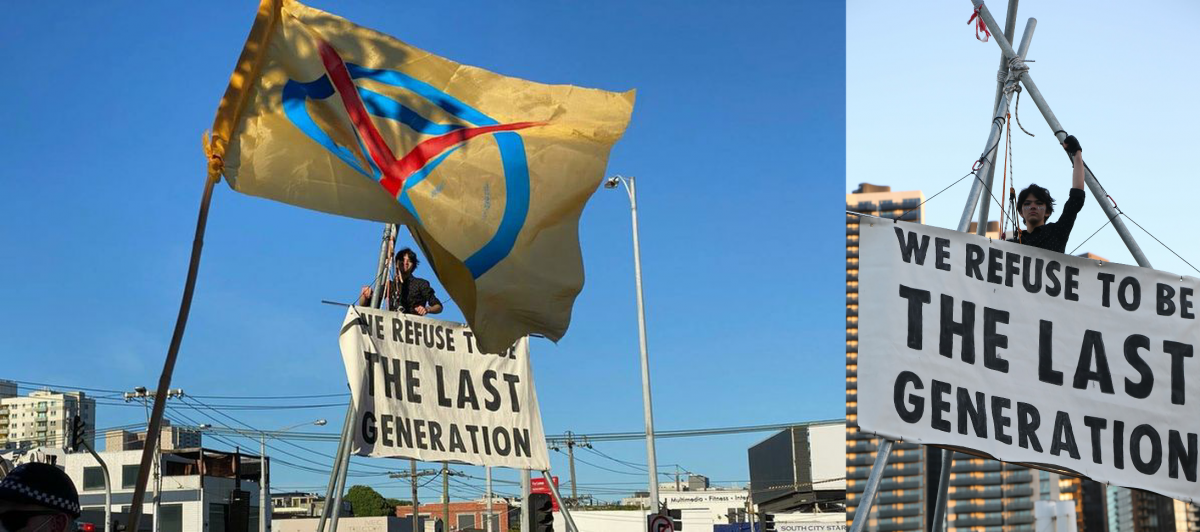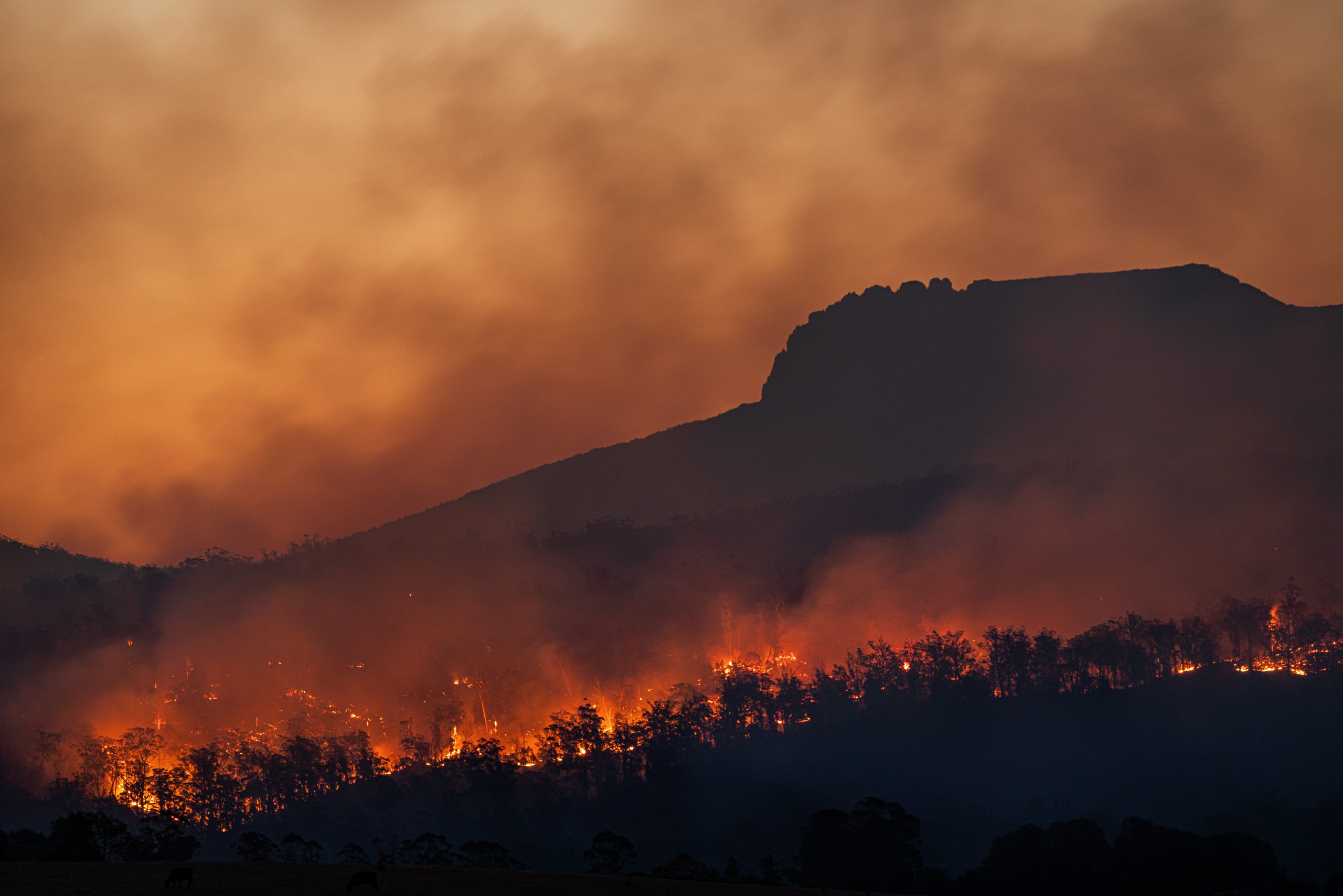It is up to us to decide who governs us — climate warriors or humbuggers

We need to treat the climate emergency as a global war we are on track to lose unless we can focus our efforts on the only task that matters – reversing global warming. If we fail here no other tasks matter — our species risks extinction no matter how we arrange the deck chairs on the burning ship — and the risk continues to rise the longer we delay action.
William P. Hall

The climate emergency has two possible outcomes
BUSINESS AS USUAL
Risk runaway warming to a hothouse earth and extinction
RECOGNISE THE EMERGENCY
Mobilise to the max & work to become good stewards of our precious blue planet
There is no planet B
VOTE CLIMATE ONE to heal our planet
It is time for Australian citizens to reclaim our government from the puppets of the fossil fuel industry.
These humbugging puppets have been working for several years to keep their immensely rich patrons safe from any economic harm from actions to stop and reverse the global warming that has been changing our climate to allow ever more, and more deadly extreme weather events.
It is time for Australian citizens to replace the puppets in our Parliament with independent people or parties who are publicly committed to put action to fight the growing climate emergency at the top of their agendas if elected. As our name states, Vote Climate One has been established to help you elect these kinds of people in your individual electorates.
Welcome to our updated and “election ready” site!
Please check it out!
Home explains what we are about and who we are.
Traffic Light Voting, explains how our system will help ensure that your vote will count maximally towards electing ‘climate friendly’ representatives in your house and senate electorates.
Climate Heroes explains how you can help in a very big way to put our voting guide in everyone’s hands in your electorate and help us to make the guide as accurate as it possibly can be.
Political parties discusses the roles political parties have played in Australia to bring us to the present state of general inaction relative to the worsening climate emergency, and what we know about their stances relative to solving the emergency.
Electorates tells you what what we know about each candidate in each individual federal house and senate electorate, and shows you how we have ranked them in relation to their party or public stances on prioritizing action on the climate emergency.
Once the election is declared and the ballot papers laid out by the Electoral Commission, we will provide printable copies of the form so you can mark your preferences before you go to the polling booth to save you time when you are actually voting.
Climate Sentinel News is where we most differ from all other election-related web-sites. Here is where we present a curated collection of daily news items and scientific reports providing the concrete evidence relating to global warming and climate change that underlies our concerns for the futures of our families.
If you are unsure about the real importance of climate change and actions to control it, this information will keep you up to date with the latest scientific knowledge and continuing evidence from the daily news. This keeps telling us (1) we face real problems from climate change, and (2) that with the proper government, we may actually be able to make the world safer from it.
If you agree with us that we need a very different kind of government that can go beyond ‘business as usual’ there are some very positive things you can do to help spread the message
Basically our problem is that we are a purely volunteer outfit. Any funding we can raise goes to our Climate Heroes program to support posting and letter-boxing our paper Voting Guide in marginal electorates. However, the Web campaign is also critically important to reach possible swing voters in all electorates in hope that we may swing a few surprises here as well to remove some of the worst special interest puppets from their normally very safe seats.
The internet (Web) is truly remarkable in that social media has the power to circulate ‘interesting’ news to an exponentially growing market as fake news publishers all too frequently demonstrate. This doesn’t even have to be paid for if readers want to share the item.
We think VoteClimateOne’s Climate Sentinel News and/or our Traffic Light Voting System might be circulated in this same way. For example, if you find this post to be interesting enough to share with some of your friends, Google and other search engines will pick up on this interest and prioritize showing the post in other people’s search results over other, apparently less interesting stuff. There are some very simple things you can do in Facebook and Twitter to multiply this effect many times over.
For Facebook – when you receive a post from VoteClimateOne (like this one), (1) click the Like icon. (2) click the Share icon and then the Share now (Friends), write something in the comment saying why they should read the post and add some appropriate hash tags, e.g., #VoteClimateOne #AusPol #TellTheTruth #ScottyFromMarketing #WhereTheBloodyHellAreYou #AustraliaBurns #AustraliaFloods #ClimateEmergency #GlobalWarming. The presence of any one of these in YOUR comment to the item you are sharing will insure that this vote climate one post will be added to the posts indexed under that hash tag. And the more times this one post is shared by someone else also using the same hash tag, the closer this post will be to the top of the list someone sees when they do a search on the hash tag.
If everyone receiving a post from Vote Climate One shares only one post a day with all of their friends, within only a few days we will saturate the Web – especially if the hash tags are specifically Australian in context. Twitter works in very much the same way, but Paul Hosking, our Search Engine Optimization guru explains how this works in a video.